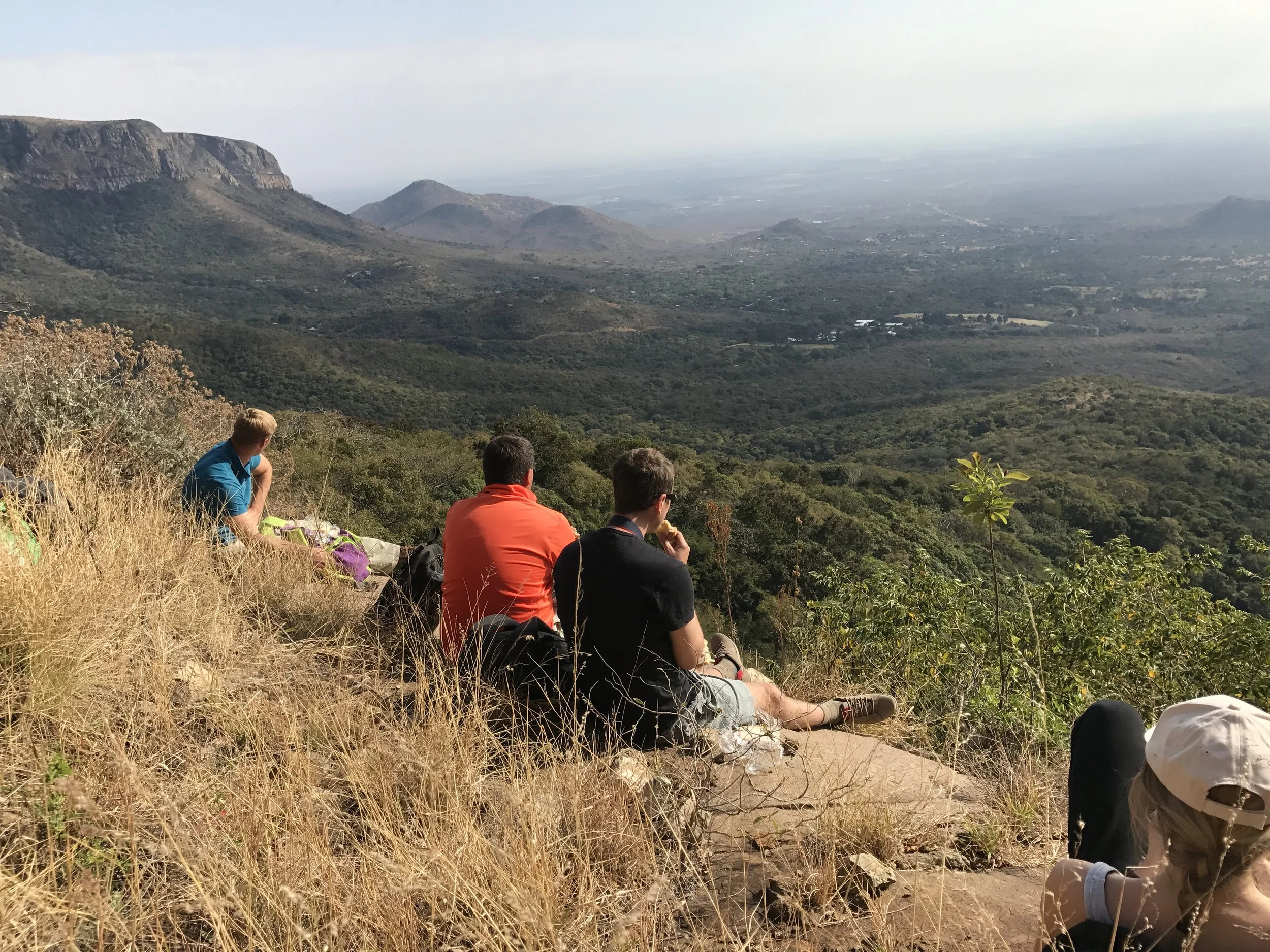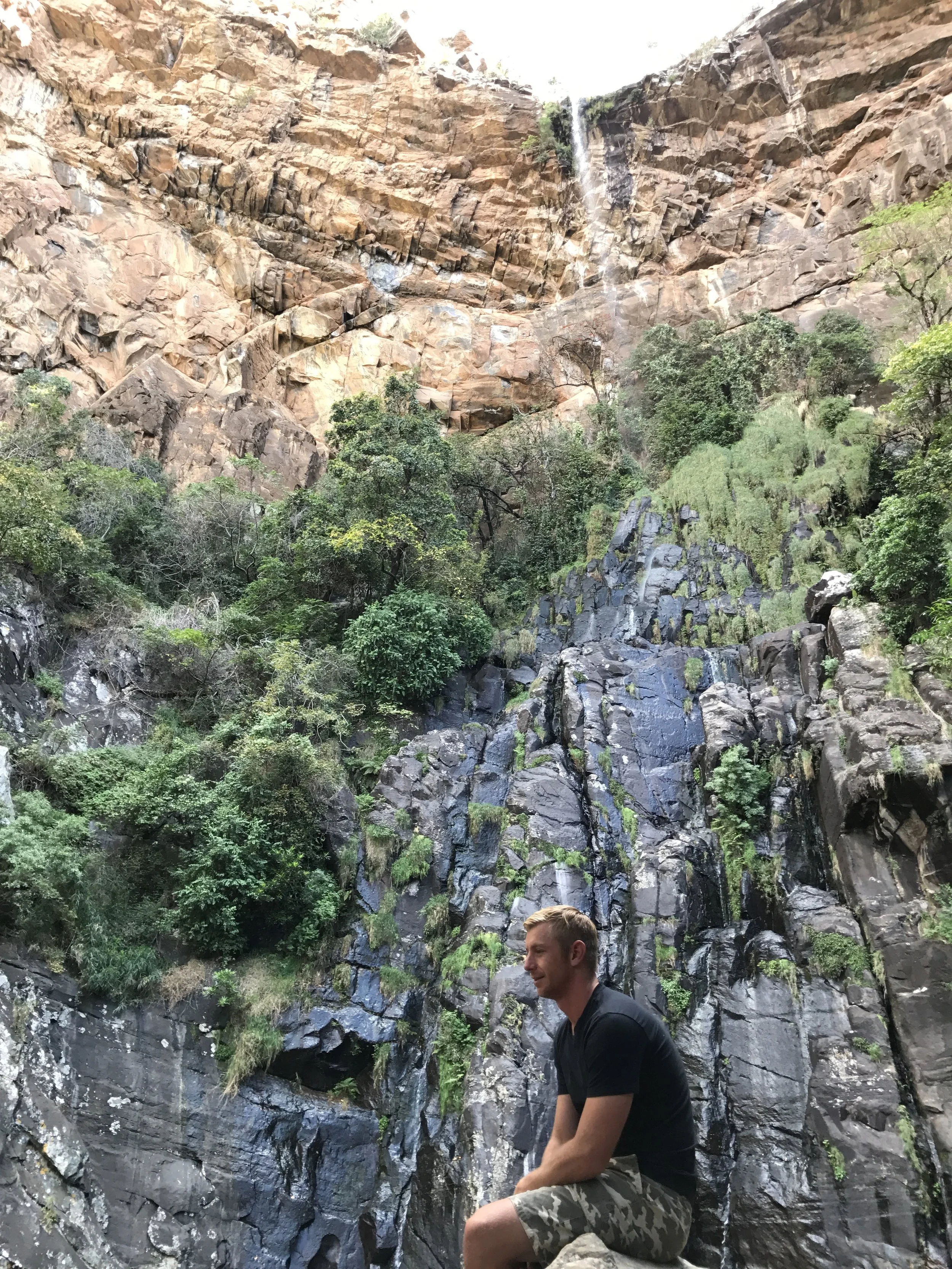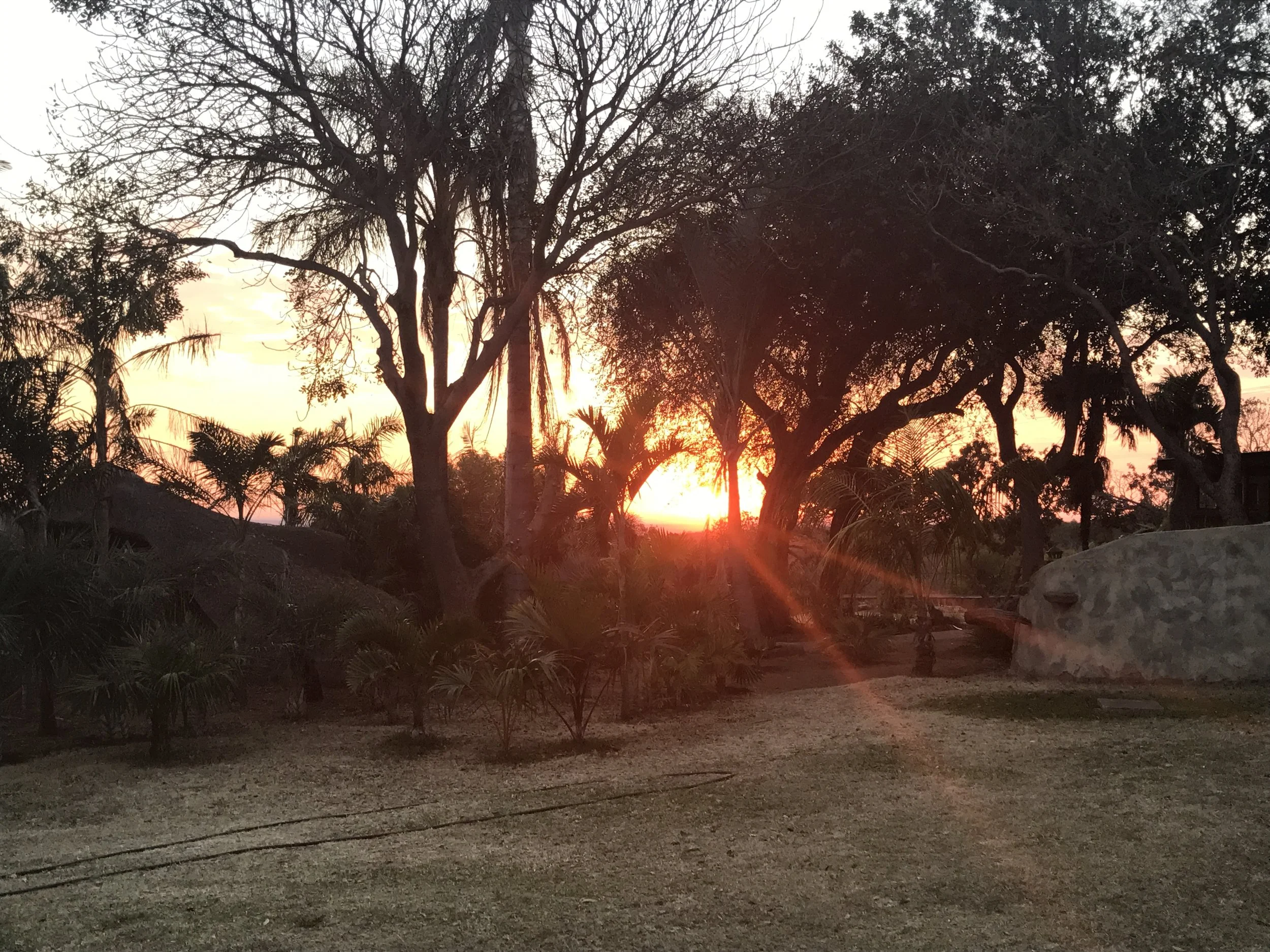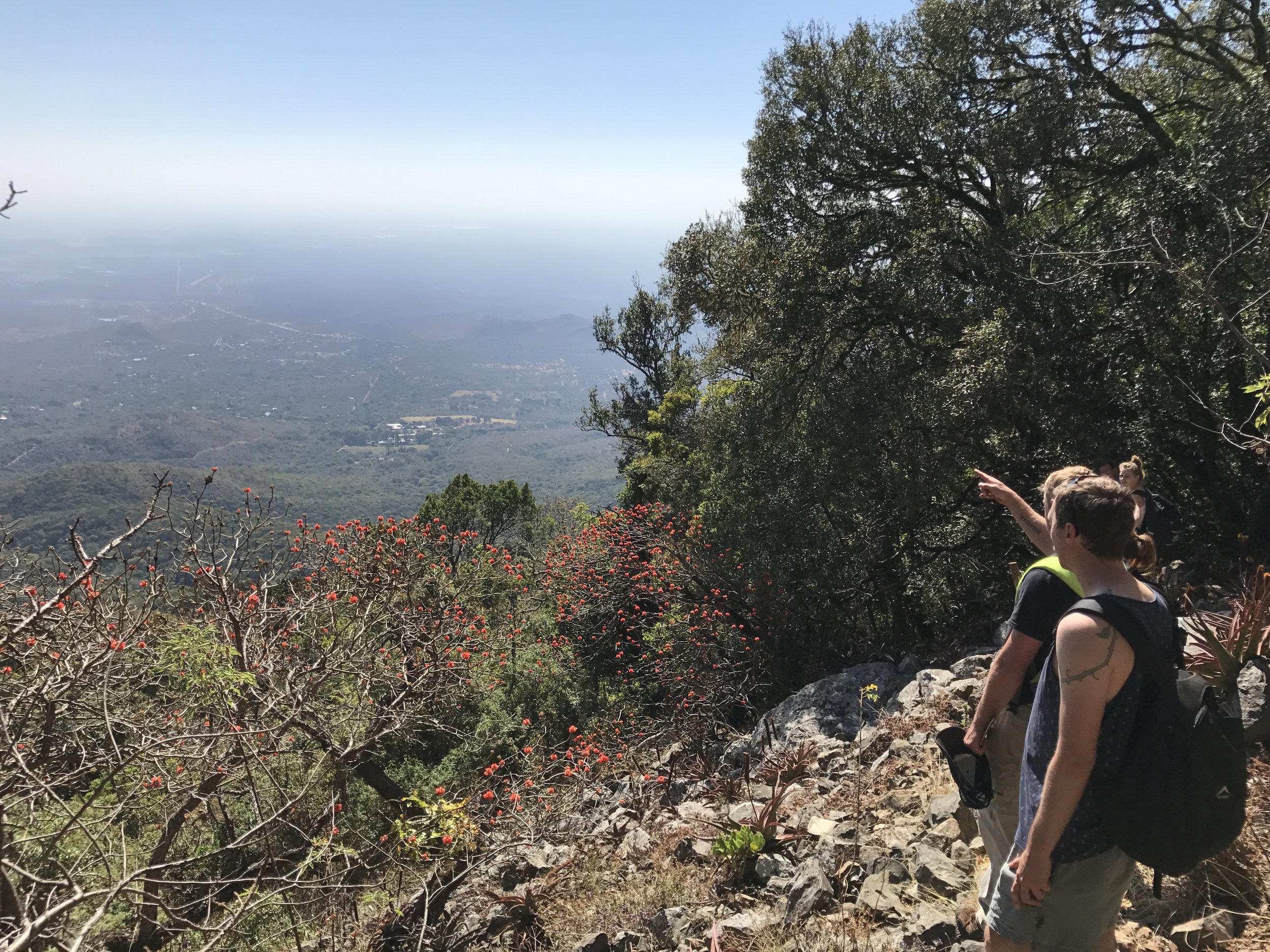Our Treatment Program
The focus of our programme is balancing the three recovery components of this illness – physical, psychological and spiritual. We try to bring new twists to the 12 step programme through different approaches to learning and applying these steps, incorporating workbooks and approaches from Narcotics Anonymous, The Big Book and Celebrate Recovery Programmes.
Group Therapy
Group Therapy takes place daily in many different forms and in different settings. Daily processeing groups, topic groups, peer evaluation groups and specialised groups. Groups are conducted onsite and offsite in many beautiful settings.
Counselling
Counsellors are involved in all of the day to day activities of the residents from meal prep to hiking trips. One-on-one sessions are conducted regularly to unpack and process many of the past hurts and pain the resident carries.
Lectures
There is an array of lectures developed in accordance with the latest research and findings in the field of addiction bringing deeper knowledge and understanding to recovery principles and to the different associated problems of addiction.
It's Time for Change - Step 1
Start your own biography/testimony which incorporates both your life-story and a focus on principles of powerlessness and unmanageability and continue recording your journey throughout your program with specially designed questionnaires and daily inventories.
Hope for Change and Decision time
A three day hike up the mountain to break away and focus on what it means to surrender, to let go of control and to commit to the next phase of your process. This therapeutic journey allows one to become still and quiet and to focus on what one wants from life.
Maintaining progress and being service-centred
Steps 10, 11 and 12 of the 12 Step program are important daily practices that we incorporate early into the treatment process. Mapping your progress, challenging yourself and being people-orientated rather than self-centred are crucial ingredients to a healthy and progressive recovery.
Specialised Programmes
Although we all struggle with the same illness we don't all have the same problems. There are an array of specially developed programs to address issues like Bi-Polar, Eating Disorders, Social Anxieties, Self-esteem, Cannabis, Cocaine, Alcohol, Sex Addiction, Sexual Abuse and family dynamics. Individualised treatment programmes are tailored to suit each need - Please see below for details.
Daring to face ourselves - Step 4
One of the most crucial elements of any recovery process is step 4. We have to fearlessly face our inner self and bring to light all that we have been hiding and holding onto. This is a difficult process but one that promises massive growth.
Coming Clean - Step 5
The pinnacle of the recovery journey is the ability to finally confess and let go of all the things that have kept us trapped in the ever repeating cycle of addiction. The cleansing process of admitting your faults brings you to a place of finally being able to let go of some of the coping mechanism that have kept us trapped.
Ready and Willing - the quest for humility
A final journey of saying good bye to the old you and becoming ready to embrace the new you. Having come this far one finds a new zest for life and a new purpose and meaning for existence. We become ready and willing to face the challenges that lie ahead.
The Journey continues - a life of ammends
Equipped with a plan and surrounded by support the resident goes on to pursue their dreams and to rebuild a better life. With restored relationships and the tools to continue their growth the resident is able to embrace life and continue to experience peace and joy.
Here at Jahara Treatment Centre we are constantly designing and developing specialised workbooks to focus on specific problems associated with addiction. These problems may include childhood trauma, abuse (both as the victim and the perpetrator), sexual addiction and sexual abuse, co-dependancy issues, boundary issues, co-morbid disorders such as Bi-Polar and anxiety and other process addictions such as self-harm, eating disorders and gambling addiction.
We truly believe that if treatment is to be successful a comprehensive program is needed to address every little aspect that is contributing to the negative self-image, the sense of shame, anger, resentment and lack of self-worth. Each one of these programmes is designed to address the psychological, emotional and behavioural problems associated with each element and is supported often by specialised groups and lectures.
To date we have developed the following Programs:
Boundaries Booklet
Based on low self-esteem, fear of rejection and a deep need for acceptance being the root cause of most addictions, addicts often have boundary problems stemming from their own lack of self-awareness and acceptance of who they are. This booklet is designed not only to assist them developing their own boundaries based on their own value system but also assists them in managing relationships within healthy boundaries.
Co-Dependancy Program
A very difficult topic and a term thrown around in recovery very loosely. This booklet assists those that struggle with unhealthy co-dependancy in their relationships and allows individuals the option to move into a more emotionally and psychologically independent state. In response to a very unhealthy addiction there is often co-dependant relationships that form alongside very maladaptive behaviours.
Eating Disorder and Body Image Programme
Eating disorders and body image issues often go hand in hand with addiction and trauma and are serious underlying problems and causes to continuous relapses in behaviour. These are very difficult issues to overcome and require additional specialised groups and workbooks to assist in overcoming.
Drug of choice programmes
We have very specialised programmes developed for the different drugs of choice. We have a cannabis programme, CAT, Crystal, Cocaine and Crack programmes, alcohol programmes and heroin programmes. Each programme consists of roughly 4 booklets and addresses the very subconscious nature of the psychological and emotional dependance of each drug and the short and long term effects. Each programme also introduces strategies of managing cravings and triggers.
Culture of addiction to culture of recovery
This is a vitally important ingredient for addiction/ recovery treatment. Understanding the process that the culture of addiction plays in developing the beliefs and identities of addicts assists residents to understand the very same process but from a recovery perspective.
Gambling
We have a specially designed gambling programme to assist individuals in dealing with this common co-occurring addiction. Many individuals won’t even notice they have this problem especially when their using is taking place in the 24 hour casino’s. With the latest growing trend in online gambling this can pose a serious threat to recovery and must be addressed as part of treatment. Our gambling programme is support by a specialised gambling support group.
Sexual Addiction
Although this may scare many we have all heard the term “sex, drugs and rock n roll”. Unfortunately sex and substance misuse often go hand in hand. With an addicts underlying fear of rejection, inadequacy and general lack of self-esteem sex can become a major stumbling block in recovery. These booklets help to understand what sexual addiction is and the shame that drives it.
Self-esteem and social anxiety
There are two different programmes which help to address two of the most common causes of addiction - a very flawed low self-esteem coupled with social anxiety. An addicts inability to function in normal society without substances is a very real cause of relapse while in recovery. In order to overcome some of the social anxiety issues one has to address the low self-esteem and flawed beliefs addicts have about themselves, their abilities and their role in society.
Sexual Abuse
This is an all too real problem associated with addiction be it childhood sexual abuse, sexual abuse in school or sexual abuse while in the context of the culture of addiction. Approximately 80% of all female residents have experienced some form of sexual abuse and all to often (although often not spoken about) male residents have also been the victim of sexual abuse. There is nothing more confusing and damaging than sexual abuse and we have an in-depth programme and specialised support group to deal with sexual abuse and the associated beliefs and behaviours.




















